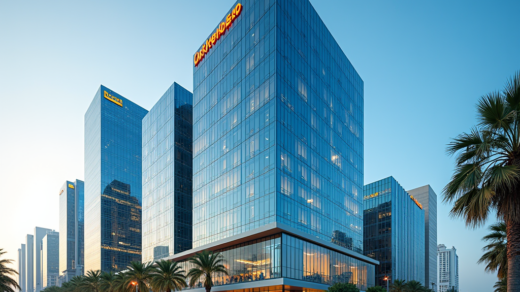Dubai’s regulatory environment plays a crucial role in shaping the landscape for entrepreneurs looking to establish and grow their businesses. With a rapidly evolving economy and numerous incentives for foreign investors, understanding the nuances of local regulations is vital for success. This article provides a comprehensive overview of key regulations, licensing requirements, and the support systems available for entrepreneurs in Dubai.
Overview of Dubai’s Business Regulations

Dubai has made significant strides to create a favourable environment for entrepreneurs, focusing on ease of doing business, economic diversification, and sustainability. The regulatory landscape includes various laws that govern business practices, covering everything from corporate governance to employment. Notably, the UAE has established the UAE Federal Law No. 2 of 2015 on Commercial Companies, which sets the framework for business operations.
Additionally, Dubai has several free zones that offer unique regulations aimed at attracting specific industries. These free zones allow for 100% foreign ownership, zero corporate tax, and full repatriation of profits, thus providing a substantial incentive for entrepreneurs. Understanding the differences between operating in a free zone versus the mainland is crucial for making informed business decisions.
Types of Business Licenses

To operate legally in Dubai, entrepreneurs must obtain the appropriate business licenses based on their industry. The main types of licenses include:
- Commercial License: Required for trading and retail activities.
- Professional License: Necessary for service-oriented businesses, including Consultancy and Freelancing.
- Industrial License: Needed for manufacturing entities.
- Tourism License: Essential for businesses in the hospitality and tourism sectors.
- E-commerce License: For businesses conducting online sales.
Each license has its own requirements and renewal processes, making it important for entrepreneurs to carefully review which license aligns best with their business model. In some cases, additional approvals from governmental bodies may also be necessary.
Free Zones vs. Mainland: What You Need to Know
Choosing between a free zone and mainland business licensing is one of the most significant decisions an entrepreneur will make in Dubai. Free zones, such as the Dubai Multi Commodities Centre (DMCC) and Dubai Internet City (DIC), provide several advantages, including tax incentives and simplified setup processes. However, businesses established in free zones are typically limited to operating within the zone or internationally, unable to directly trade with the UAE mainland without a local agent.
Conversely, mainland companies can trade directly with the local market but often require a local sponsor who holds 51% of the business shares in accordance with UAE law. This dynamic can be both beneficial and problematic, depending on the entrepreneur’s growth strategy and market ambitions. Therefore, assessing the long-term goals of the business is vital when deciding on the business structure.
Compliance and Regulatory Bodies
Dubai’s business ecosystem is overseen by various regulatory bodies responsible for enforcing compliance with local laws and regulations. The Department of Economic Development (DED) is central to business licensing and regulatory oversight. It issues various licenses and monitors commercial activities to ensure compliance with UAE laws.
Other key entities include:
- Dubai Chamber of Commerce and Industry: Aimed at supporting businesses with networking and advocacy.
- Dubai Investments: For investment opportunities in various sectors.
- Ministry of Economy: Oversees the economic policies and supports national businesses.
Compliance with local laws isn’t just limited to licensing; it includes adhering to employment regulations, tax obligations, and environmental standards, ensuring that entrepreneurs are fully aware of and engaged with the regulatory landscape.
Government Support for Entrepreneurs
The Dubai government actively fosters entrepreneurship through multiple initiatives and support programs. The Dubai Startup Hub, for instance, offers resources, workshops, and networking opportunities designed to help new businesses flourish. Additionally, the Dubai Innovation Strategy encourages innovative business practices across various sectors.
Moreover, funding options are available through governmental and private institutions, including the Dubai Entrepreneurship Academy, which provides training and mentorship programs. Other initiatives include:
- Grants: Financial aid for qualifying startups to assist with initial costs.
- Networking Events: Local meetups and exhibitions designed to foster relationships within the entrepreneurial community.
- Advisory Services: Expert advice on business setup, licensing, and market entry strategies.
Engaging with these programs can significantly enhance an entrepreneur’s chances of success in Dubai’s competitive market.
Conclusion
Understanding Dubai’s regulatory environment is essential for entrepreneurs aiming to establish and grow their businesses successfully. With various licenses, regulatory bodies, and support systems in place, navigating the local landscape can be streamlined with adequate knowledge and preparation. Evaluating the differences between free zones and mainland operations is crucial in setting a firm foundation, ensuring compliance, and leveraging available resources. Entrepreneurs who stay informed and utilize local support can maximize their chances of achieving business success in this dynamic city.
Frequently Asked Questions
1. What is the best business license for a startup in Dubai?
The best business license for a startup in Dubai depends on the nature of the business. For trading activities, a Commercial License is typically required, while service-oriented businesses may need a Professional License. It’s crucial to evaluate the specific activities planned and align the license accordingly.
2. Can a foreigner own a business in Dubai?
Yes, foreigners can own 100% of their business if established in a free zone. However, if a business is set up in the mainland, a local sponsor who holds at least 51% of the shares is usually required.
3. What are the key benefits of setting up in a free zone?
Key benefits of setting up in a free zone include 100% foreign ownership, zero corporate tax, and full repatriation of profits. Free zones are also tailored to specific industries, providing additional networking and collaboration opportunities.
4. How can I ensure compliance with local regulations in Dubai?
To ensure compliance, entrepreneurs should stay informed about ongoing changes in the regulatory landscape, engage legal support when necessary, and actively participate in workshops and seminars offered by local authorities and institutions.
5. What types of governmental support are available for startups in Dubai?
Governmental support for startups in Dubai includes grants, funding opportunities, training programs, and networking events through platforms such as the Dubai Startup Hub and the Dubai Entrepreneurship Academy.


